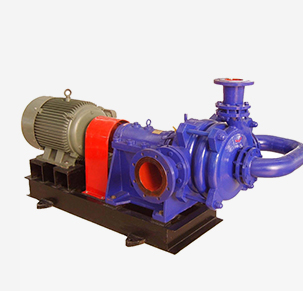Sinhala
- Afrikaans
- Albanian
- Amharic
- Arabic
- Armenian
- Azerbaijani
- Basque
- Belarusian
- Bengali
- Bosnian
- Bulgarian
- Catalan
- Cebuano
- Corsican
- Croatian
- Czech
- Danish
- Dutch
- English
- Esperanto
- Estonian
- Finnish
- French
- Frisian
- Galician
- Georgian
- German
- Greek
- Gujarati
- Haitian Creole
- hausa
- hawaiian
- Hebrew
- Hindi
- Miao
- Hungarian
- Icelandic
- igbo
- Indonesian
- irish
- Italian
- Japanese
- Javanese
- Kannada
- kazakh
- Khmer
- Rwandese
- Korean
- Kurdish
- Kyrgyz
- Lao
- Latin
- Latvian
- Lithuanian
- Luxembourgish
- Macedonian
- Malgashi
- Malay
- Malayalam
- Maltese
- Maori
- Marathi
- Mongolian
- Myanmar
- Nepali
- Norwegian
- Norwegian
- Occitan
- Pashto
- Persian
- Polish
- Portuguese
- Punjabi
- Romanian
- Russian
- Samoan
- Scottish Gaelic
- Serbian
- Sesotho
- Shona
- Sindhi
- Sinhala
- Slovak
- Slovenian
- Somali
- Spanish
- Sundanese
- Swahili
- Swedish
- Tagalog
- Tajik
- Tamil
- Tatar
- Telugu
- Thai
- Turkish
- Turkmen
- Ukrainian
- Urdu
- Uighur
- Uzbek
- Vietnamese
- Welsh
- Bantu
- Yiddish
- Yoruba
- Zulu
Telephone: +86 13120555503
Email: frank@cypump.com
ඔක්. . 07, 2024 10:39 Back to list
chemical pumps
Chemical pumps are essential devices in various industries, particularly in the petrochemical, pharmaceutical, food and beverage, and wastewater sectors. These specialized pumps are designed to transfer, circulate, and manage chemical fluids safely and efficiently. Their construction materials and design features are specifically tailored to withstand the corrosive nature of many chemicals, ensuring reliability and safety in operations.
One of the primary functions of chemical pumps is to handle aggressive, toxic, or viscous fluids. Common materials used in the construction of chemical pumps include stainless steel, polypropylene, and fluoropolymers. These materials are selected for their resistance to corrosion, which is critical in prolonging the life of the pump and preventing leaks, thereby ensuring a safe working environment.
There are several types of chemical pumps, including centrifugal pumps, diaphragm pumps, and screw pumps
. Centrifugal pumps are commonly used for transferring liquids at a constant flow rate and are ideal for low-viscosity fluids. Diaphragm pumps, on the other hand, are well-suited for handling abrasives and are often employed in applications requiring high precision and reliability. Screw pumps provide a continuous flow and are particularly effective for viscous fluids, making them popular in many industrial processes.chemical pumps

In the chemical industry, the choice of pump significantly impacts the efficiency and safety of production processes. Advanced technologies, such as magnetic drive pumps, have emerged to eliminate the need for mechanical seals, thereby reducing the risk of leaks. Additionally, the integration of smart technologies has allowed for better monitoring and control of pump operations, leading to improved maintenance practices and reduced downtime.
Safety regulations play a crucial role in the operation of chemical pumps. It is vital for companies to adhere to strict industry standards to ensure the safe handling of hazardous materials. Regular maintenance, inspections, and employee training are essential best practices in mitigating risks associated with chemical pumping systems.
In conclusion, chemical pumps are indispensable in managing various industrial processes. Their design, material selection, and technology are continually evolving to meet the increasing demands for efficiency, safety, and environmental sustainability in the handling of chemicals. Investing in the right pumping solution is not merely an operational decision but a critical aspect of ensuring safety and reliability in any chemical-related industry.
-
ISG Series Pipeline Pump - Chi Yuan Pumps | Energy Efficiency&Compact Design
NewsAug.03,2025
-
ISG Series Vertical Pipeline Pump - Chi Yuan Pumps Co., LTD.|High Efficiency, Low Noise, Durable
NewsAug.02,2025
-
ISG Series Vertical Pipeline Pump - Chi Yuan Pumps | High Efficiency, Low Noise
NewsAug.02,2025
-
ISG Series Vertical Pipeline Pump- Chi Yuan Pumps Co., LTD.|High Efficiency&Compact Design
NewsAug.02,2025
-
Heavy-Duty Mining Sludge Pumps - Wear-Resistant Slurry Handling
NewsAug.02,2025
-
Horizontal Split Case Pump with GPT-4 Turbo | High Efficiency
NewsAug.01,2025










